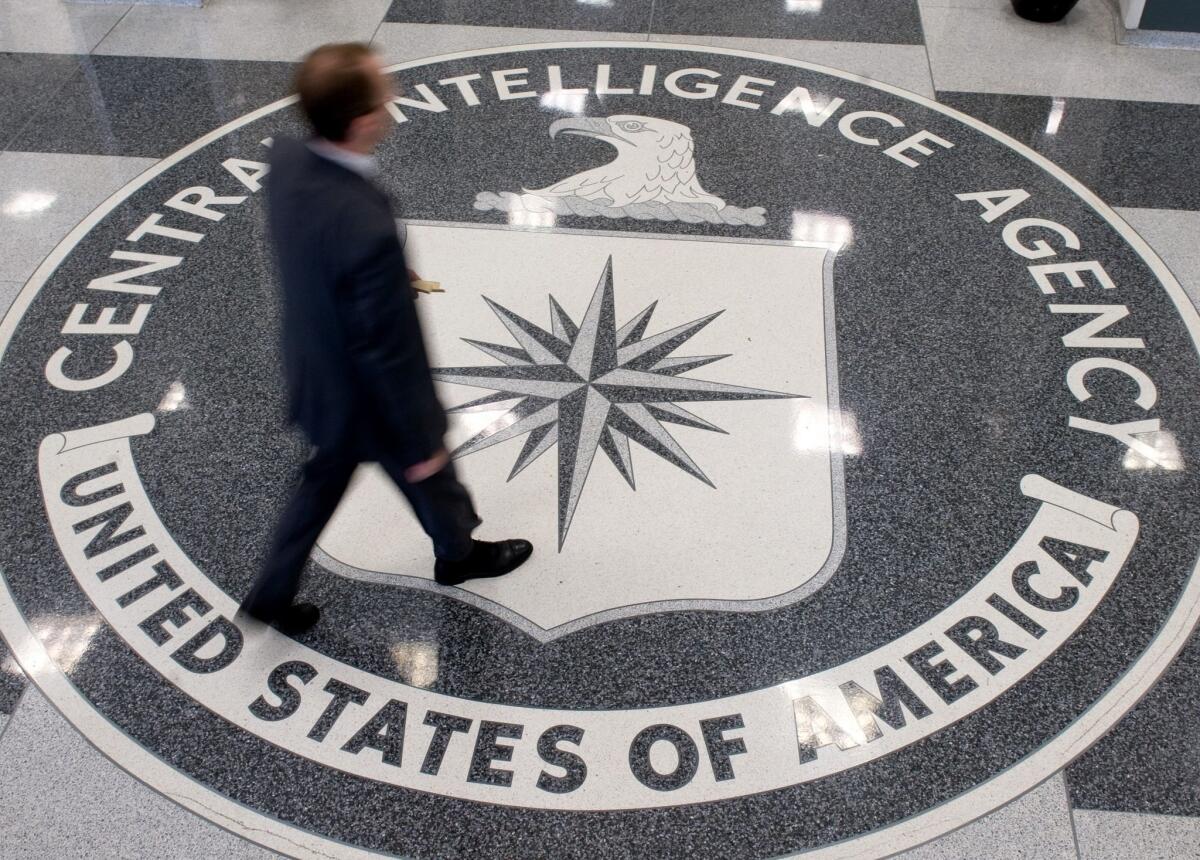Editorial: Torture report: Our post-9/11 shame, in stomach-turning detail

Americans have long known that, in the aftermath of Sept. 11, the CIA subjected suspected terrorists to inhuman and degrading treatment that amounted to nothing less than torture. A Senate Intelligence Committee report released Tuesday documented that outrageous conduct in stomach-turning detail but also described new offenses to human dignity that border on the pornographic.
The report — actually, a 499-page executive summary of a much longer (and still classified) study — concludes that not only did the spy agency’s program of “enhanced interrogation techniques” fail to turn up any vital, life-saving intelligence, but its extent and effectiveness were repeatedly misrepresented to the White House and Congress, under whose authority it was pursued.
In the inimitable words of former Vice President Dick Cheney, this country traveled to the “dark side” in the months and years after the terrorist attacks on the World Trade Center and the Pentagon. But we didn’t know how dark until the release of this report. It’s scandalous that Republicans in Congress and many in the national-security bureaucracy tried to bottle up even a portion of the Intelligence Committee’s conclusions. In the end, opponents of disclosure resorted to arguing that publication of the report would provoke attacks on America — an argument that could be used to justify suppressing the information forever.
It is old news that, armed with dubious legal advice from the Bush Justice Department, the CIA had subjected three detainees to the brutal simulated drowning technique known as waterboarding. But the Intelligence Committee found evidence — including a “well-worn waterboard” at a dungeon-like interrogation center in Afghanistan — that suggests more widespread use of a procedure long condemned as a form of torture.
The committee’s summary describes other offenses against human dignity. Detainees were prevented from sleeping for 180 hours as they stood or were placed in painful stress positions, sometimes with their hands shackled above their heads. At least five detainees received painful rectal rehydration or rectal feedings for no medical purpose. The brutality was sometimes psychological: Several detainees were told they would never be allowed to leave the agency’s custody alive; others were told that family members would be killed or sexually abused. One detainee apparently died of hypothermia after being chained, naked, to a concrete floor. At least 26 detainees were “wrongfully held,” including an “intellectually challenged” man who, the report said, was detained solely as leverage to persuade a relative to provide information.
Such mistreatment would be a violation of the Geneva Convention even if it yielded vital intelligence about terrorist plots past, present and future. But the committee concluded that “the CIA’s justification for the use of its enhanced interrogation techniques rested on inaccurate claims of their effectiveness.” For example, the CIA maintained that Abu Zubaydah, who was repeatedly waterboarded, identified Khalid Shaikh Mohammed as the mastermind of the Sept. 11 attacks after being subjected to “enhanced” techniques. But the committee says that “this information was corroborative of information already in CIA databases.”
The committee concludes that the CIA also misled the Department of Justice — on which it relied for legal authority — about the conditions of detainees’ confinement and the debilitating physical effects of the “enhanced interrogation techniques.”
All in all, the document released Tuesday amounts to an indictment of the CIA and its political enablers that is no less shocking because many of the events it describes happened during the administration of President George W. Bush and would no longer be permitted. No doubt some of the committee’s findings about particular circumstances are open to debate. But defenders of the agency will have a hard time refuting its central conclusions, which are based on analysis of millions of pages of internal cables, emails and other communications, along with interviews conducted by the CIA’s inspector general.
The CIA detention and interrogation program was immoral, illegal, out of control and (the committee persuasively argues) unnecessary. President Obama’s admission this summer that “we tortured some folks” doesn’t begin to convey the appalling violations of human rights and international law cataloged by the Intelligence Committee. The officials who carried out these acts shamed themselves and their country.
In reacting to the release of the report, Secretary of State John F. Kerry said that it “marks a coda to a chapter in our history” and noted that Obama “turned the page on these policies when he took office.” But there will be other presidents and other crises that might tempt them to look the other way while human rights are violated in the name of national security. For them, and for us, this report is wrenching but required reading.
Follow the Opinion section on Twitter @latimesopinion
More to Read
A cure for the common opinion
Get thought-provoking perspectives with our weekly newsletter.
You may occasionally receive promotional content from the Los Angeles Times.










